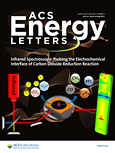
ACS Energy Letters
Scope & Guideline
Illuminating the Path to Sustainable Energy Solutions
Introduction
Aims and Scopes
- Energy Conversion Technologies:
Research on the development and optimization of technologies that convert energy from one form to another, such as solar cells, batteries, and electrochemical systems. - Energy Storage Solutions:
Studies focusing on materials and systems for energy storage, including batteries (lithium-ion, sodium-ion, etc.) and supercapacitors, with an emphasis on enhancing efficiency and lifespan. - Materials Science for Energy Applications:
Exploration of novel materials, including perovskites, nanomaterials, and polymers, that can improve performance in energy applications, such as photovoltaics and electrocatalysis. - Electrochemistry:
Investigations into electrochemical processes related to energy conversion and storage, including redox reactions, ion transport, and solid-electrolyte interfaces. - Sustainability and Environmental Impact:
Research addressing the environmental implications of energy technologies, including recycling of materials, life-cycle assessments, and sustainable manufacturing practices. - Interfacial and Surface Chemistry:
Studies examining the role of interfaces and surface chemistry in energy devices, focusing on charge transfer, stability, and degradation mechanisms.
Trending and Emerging
- Perovskite Solar Cells:
Research on perovskite solar cells continues to flourish, with a focus on enhancing efficiency, stability, and scalability, reflecting their potential to revolutionize solar energy generation. - Electrochemical CO2 Reduction:
There is a growing emphasis on the electrochemical reduction of CO2 to valuable products, indicating a shift towards carbon capture and utilization technologies as part of climate change mitigation strategies. - Solid-State Batteries:
Solid-state battery research is trending, driven by the need for safer and more efficient energy storage solutions, with a focus on novel electrolytes and anode materials. - Sustainable Materials and Recycling:
Emerging themes include the development of sustainable materials and recycling methods for batteries and solar cells, reflecting a broader commitment to circular economy principles. - Machine Learning and AI in Energy Research:
The incorporation of machine learning and artificial intelligence is on the rise, used for optimizing materials discovery, predicting performance, and enhancing the efficiency of energy systems. - Hydrogen Production and Storage:
Innovations in hydrogen production methods, particularly through water splitting and ammonia synthesis, are gaining prominence as hydrogen emerges as a key player in the future energy landscape.
Declining or Waning
- Traditional Fossil Fuel Technologies:
Research related to conventional fossil fuel technologies is becoming less prominent, as the focus shifts towards renewable and sustainable energy sources. - Single-Catalyst Systems:
There is a noticeable decline in papers focused solely on single-catalyst systems for electrochemical reactions, as more complex, multi-catalyst systems are being explored for enhanced performance. - Low-Temperature Processes:
Studies emphasizing low-temperature reactions or processes are waning, as there is a growing interest in high-temperature applications that can enhance efficiency and reaction rates. - Conventional Solar Cell Technologies:
Research into traditional silicon-based solar cells is declining as the field pivots towards more innovative technologies such as perovskite and tandem solar cells. - Basic Theoretical Studies:
The journal has seen a reduction in purely theoretical studies without experimental validation, reflecting a trend towards more applied research that combines theory with practical applications.
Similar Journals

Carbon Energy
Illuminating breakthroughs in energy and sustainability.Welcome to Carbon Energy, an esteemed open-access journal published by WILEY that focuses on cutting-edge research in the field of energy and materials science. Since its inception in 2019, this journal has quickly established itself as a leading platform for disseminating impactful findings and innovations related to carbon-based energy solutions, renewable resources, and sustainability practices. With its impressive Q1 rankings in multiple categories—including Energy (miscellaneous), Materials Chemistry, and Renewable Energy—Carbon Energy is recognized for delivering high-quality, peer-reviewed content that meets the rigorous standards of the academic community. Through its open-access model, the journal ensures wide accessibility of research findings, making it an invaluable resource for researchers, professionals, and students alike. As we look toward the future, Carbon Energy aims to further its mission of advancing sustainable energy technologies and promoting interdisciplinary collaboration in tackling global energy challenges.

Electrochemical Energy Reviews
Empowering Scholars to Shape Tomorrow's Energy SolutionsElectrochemical Energy Reviews, published by SpringerNature, serves as an essential platform for the dissemination of cutting-edge research in the fields of electrochemistry, material science, and energy engineering. With an impressive impact factor and ranked in the Q1 category across multiple disciplines including Chemical Engineering and Energy Technology, this journal highlights its commitment to advancing knowledge and innovation within the energy sector. Operating since 2018, the journal not only provides a valuable resource for researchers and professionals but also invites contributions from students and emerging scholars interested in the pivotal role of electrochemical processes in sustainable energy solutions. Published in Germany and widely accessible to the global research community, Electrochemical Energy Reviews is an indispensable reference for those keen on exploring the future of energy technologies.
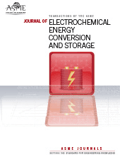
Journal of Electrochemical Energy Conversion and Storage
Empowering Energy Engineering for TomorrowThe Journal of Electrochemical Energy Conversion and Storage, published by ASME, is a premier platform for cutting-edge research in the fields of electrochemistry, energy engineering, and materials science. With an ISSN of 2381-6872 and an E-ISSN of 2381-6910, this journal aims to disseminate high-quality articles that contribute to the understanding and application of energy conversion and storage technologies. Notably recognized in the 2023 Category Quartiles as Q2 in multiple categories including Electronic, Optical and Magnetic Materials, Energy Engineering and Power Technology, and Mechanical Engineering, it reflects a strong academic impact within its field. The journal also boasts competitive Scopus rankings, highlighting its relevance and influence across disciplines. Operating under an open access model, the journal ensures that research findings are widely accessible, fostering collaboration and innovation among researchers, professionals, and students globally. As we move toward a more sustainable future, the Journal of Electrochemical Energy Conversion and Storage plays a critical role in advancing technologies that promise to reshape how we harness and utilize energy.

Energy & Environmental Materials
Empowering a Greener Future with Innovative DiscoveriesEnergy & Environmental Materials, published by WILEY, is an esteemed academic journal dedicated to pioneering research in the multifaceted domains of energy, environmental science, and materials science. Since its inception in 2018, this journal has rapidly established itself as a leading platform, holding a prestigious Q1 ranking across multiple categories including Renewable Energy, Sustainability, and Waste Management, reflecting its significant contributions to advancing knowledge in these critical areas. With a robust Scopus ranking that positions it in the top percentile for Environmental Science and Materials Science, it caters to a diverse audience of researchers, professionals, and students seeking cutting-edge findings and practical applications in energy efficiency and sustainable materials. This open-access journal facilitates the dissemination of innovative research and aims to bridge the gap between scientific exploration and real-world solutions for a sustainable future. The editorial team encourages submissions that explore both theoretical and practical aspects, ensuring that every publication not only contributes to the academic landscape but also drives impactful change in energy and environmental practices.

Batteries & Supercaps
Exploring the Future of Energy SolutionsBatteries & Supercaps is a leading international journal published by WILEY-V C H VERLAG GMBH, dedicated to the advancement of knowledge in the fields of electrical and electronic engineering, electrochemistry, and energy engineering. With a remarkable Q1 ranking in multiple relevant categories, including Electrical and Electronic Engineering, Electrochemistry, and Energy Engineering and Power Technology, this journal serves as a vital resource for researchers, professionals, and students alike who are exploring innovative solutions in energy storage and conversion technology. As the demand for more efficient storage systems continues to escalate, Batteries & Supercaps provides a platform for high-quality research articles, reviews, and technical notes that contribute to the evolution of this dynamic field. Accessible globally from Germany, the journal promises to cultivate an engaging academic discourse on battery technology and supercapacitors through insightful contributions from a diverse array of experts. Join us in shaping the future of energy solutions and explore groundbreaking findings that pave the way for sustainable innovations.
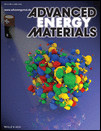
Advanced Energy Materials
Leading the Charge in Renewable Energy TechnologiesAdvanced Energy Materials is a leading academic journal published by WILEY-V C H VERLAG GMBH, focusing on the rapidly evolving fields of materials science and renewable energy technologies. With an impressive impact factor and recognition as a top-tier journal, it ranks within the Q1 category in both Materials Science (miscellaneous) and Renewable Energy, Sustainability and the Environment as of 2023. Spanning from 2011 to 2024, the journal serves as an essential platform for researchers, professionals, and students eager to explore groundbreaking advancements in energy materials, fostering innovative solutions to global sustainability challenges. The journal's authoritative content is supported by rigorous peer review, ensuring high-quality research contributes to the academic community and beyond. Located in Weinheim, Germany, Advanced Energy Materials stands at the forefront of scientific inquiry, making it an invaluable resource for those invested in the future of energy and materials science.

Advanced Energy and Sustainability Research
Exploring Innovations in Energy and Environmental ScienceAdvanced Energy and Sustainability Research is a leading open-access journal published by WILEY since 2020, dedicated to advancing knowledge and understanding in the realms of energy and sustainability. With an impressive impact factor and a commitment to high-quality, peer-reviewed research, this journal serves an international audience of researchers, professionals, and students passionate about addressing critical environmental challenges. The journal encompasses a wide array of topics within environmental science and energy fields, securing notable rankings in Scopus with top percentiles across several categories, including Ecology, Energy Engineering and Power Technology, and Waste Management. Given its open-access model, Advanced Energy and Sustainability Research facilitates the dissemination of cutting-edge research, enhancing accessibility and fostering collaboration within the scientific community. This journal not only plays a pivotal role in shaping public policy and industry practices but also aims to inspire innovative solutions for sustainable development in an increasingly complex world.

Green Energy & Environment
Driving Change Through Cutting-edge Environmental Research.Green Energy & Environment, published by KEAI PUBLISHING LTD, stands as a pioneering journal dedicated to the dynamic fields of renewable energy, sustainability, and environmental science. With its ISSN 2096-2797 and E-ISSN 2468-0257, this Q1 journal holds a noteworthy presence in academic discourse, reflecting its high-quality contributions within these critical areas of research. Launched in 2016, it has consistently embraced an Open Access model, facilitating unhindered access to research findings and fostering collaboration across global communities. Based in Beijing, China, this journal is dedicated to disseminating innovative insights that are essential for addressing urgent global challenges related to energy and environmental sustainability. Researchers, professionals, and students alike benefit from a platform that not only showcases pioneering research but also encourages interdisciplinary dialogue and knowledge exchange in the pursuit of a sustainable future.
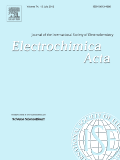
ELECTROCHIMICA ACTA
Pioneering Research in Electrochemistry and Chemical EngineeringELECTROCHIMICA ACTA is a prestigious academic journal dedicated to the field of electrochemistry and chemical engineering. Published by PERGAMON-ELSEVIER SCIENCE LTD, this journal stands out with its impressive impact factor and is categorized in the top quartile (Q1) for both Chemical Engineering and Electrochemistry in 2023, further cementing its role as a leading venue for cutting-edge research. With a publication history dating back to 1959 and converging into 2024, it has established a substantial archive of influential articles that explore various aspects of electrochemical processes, materials, and applications. Researchers and professionals in the field benefit from the journal’s high visibility, as it ranks remarkably well according to Scopus metrics, with a position in the 90th percentile for General Chemical Engineering and 84th percentile for Electrochemistry. Although ELECTROCHIMICA ACTA does not currently offer open access, it continues to serve as a vital resource for those seeking to expand their knowledge and explore innovative developments in electrochemical science.
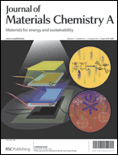
Journal of Materials Chemistry A
Advancing Sustainable Solutions for a Greener TomorrowJournal of Materials Chemistry A, published by the Royal Society of Chemistry, stands as a leading peer-reviewed journal in the fields of Chemistry, Materials Science, and Renewable Energy. With an impressive ranking within the top quartile (Q1) across these disciplines in 2023, this journal not only showcases groundbreaking research but also addresses pivotal challenges in sustainable materials and energy. Spanning from 2013 to 2024, it serves as a vital platform for scientists and engineers to present innovative solutions and advances in materials that directly contribute to environmental sustainability. Accessible to a broad audience, the journal's contributions are essential for anyone engaged in the development of new materials and technologies that promise to shape a greener future. With a commitment to high-quality open access publishing, the Journal of Materials Chemistry A is instrumental in disseminating impactful research to enhance scholarly communication and foster collaboration in an increasingly interconnected research landscape.